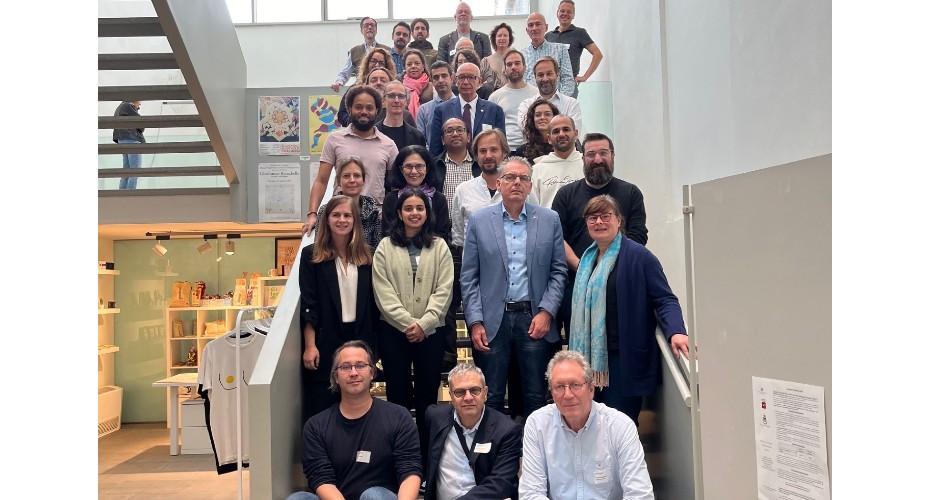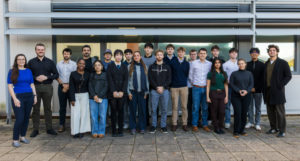UNEXE contributed to advancing Water-Utility Symbiosis towards Net Zero

(UNEXE) experts recently participated in the final General Assembly of the ULTIMATE project (indUstry water-utiLiTy symbIosis for a sMarter wATer society) to conclude the successful international collaboration in the past four years
The University of Exeter (UNEXE) experts recently participated in the final General Assembly of the ULTIMATE project (indUstry water-utiLiTy symbIosis for a sMarter wATer society) to conclude the successful international collaboration in the past four years.
ULTIMATE, stared from June 2020, was funded by the European Union’s Horizon 2020 research and innovation programme (GA 869318) as part of the circular economy call CE-SC5-04-2019.
The consortium was coordinated by Dutch water cycle research institute, KWR, and supported by 26 partners from 11 countries, including companies, industrial stakeholders, specialised SMEs, applied research institutes, technology platforms, cities, and regional authorities.
ULTIMATE aimed to create economic value and increase sustainability by valorising resources within the water cycle. The key achievements in ULTIMATE including better understanding of reusable resource in industrial wastewater, development of
methodology to facilitate the industrial symbiosis for recycling and sharing the resources among business oriented industrial ecosystem. The Centre for Water Systems (CWS) and the Centre for Simulation, Analytics and Modelling (CSAM) at the Faculty of Environment, Science and Economy (ESE) have jointly contributed to the scientific breakthrough in ULTIMATE.
Prof Slobodan Djordjevic from CWS highlighted the interactive decision support tool created by UNEXE that has been applied to three different case studies for industrial symbiosis practice in circular economy, while
Prof Nav Mustafee from CSAM shared insights into the development of a modelling framework for the symbiosis of the water cycle, its implementation and scenario experimentation to support the decision-making processes around the formation of industrial symbiosis.
Prof Slobodan Djordjevic said “The ULTIMATE project has brought remarkable environmental, financial, scientific and policy impacts. A conservative estimate is that it has and will continue to lead to (per annum) at least 11 million m3 of water re-used, 2,000 tones of material recovered and 7GWh of energy saved.
More than €100m will be invested in upscale pilots, creating 60 new jobs. In addition to 65 journal publications and 40 ULTIMATE project reports, the policy brief has been sent to new EU representatives.”
Prof Nav Mustafee added “This project provided us the opportunity to work with the stakeholders of three ULTIMATE case studies, based in the Netherlands, Greece and Israel, respectively, and to develop hybrid computer simulation models that integrated approaches from Operations Research and Water Engineering.”
Dr Lydia Vamvakeridou-Lyroudia, a Senior Research Fellow at the CWS, said “Through ULTIMATE, we have demonstrated that turning wastewater into valuable resource is viable solution for moving towards net zero. The ULTIMATE models and toolkits help the stakeholders envision the potential benefits of embracing industrial symbiosis.”
Other UNEXE members involved in the ULTIMATE project include Profs Dragan Savic and Albert Chen, Drs Barry Evans, Mehdi Khoury and Otto Chen.



